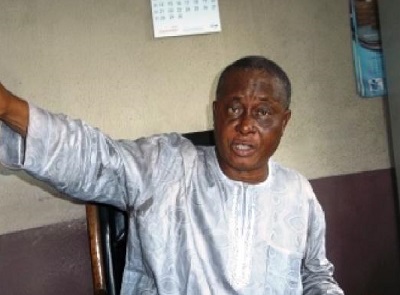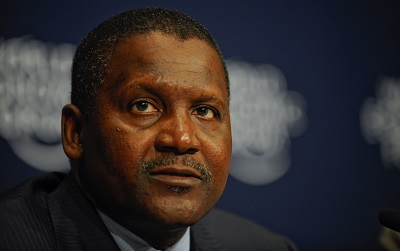There Will Be No Fuel Scarcity This Festive Season – NNPC

Wednesday, 30th November, 2016 will ever remain a memorable day in the history of ship ownership in Nigeria. It was a dinner and gala evening organised by the ShipOwners Association of Nigeria(SOAN). Mr. Henry Obih,Group Executive Director, Downstream of NNPC, who represented the Group Managing Director of the Corporation, spoke with MMS Plus exclusively. He explains why fuel is always scarce during festive period, government’s plan to change the trade policy of Free On Board(FOB) and Cost Insurance Freight(CIF) in favour of Nigerians, among other pertinent issues affecting the oil and gas sector, especially the green light emerging now about the participation of indigenous ship owners in crude oil carriage. Excerpt.
Let’s talk about Nigeria’s policy on the transfer of crude oil. It has always been on FOB and concerned stakeholders are worried. Why FOB?
The oil industry is very dynamic, so we make changes over time and this is something we are currently looking at. If the opportunities for increasing the benefits for NNPC or by extension ship owners in Nigeria is enabled or enhanced by the change in that policy, then we are open to it. We are ready to support a switch to improve returns for investors in the sector and increase trade.
Some stakeholders have asserted that the NNPC can’t change from FOB because of some long term contracts entered with foreign ship owners on FOB basis. Can you confirm this?
That is not correct. The entire crude production is processed through a tender and Nigerian crude is lifted by people who win bids through the tender. So, ultimately, a lot of decision making is made by the eventual winners of the tender.
You told us about the 2015 oil bidding figures, but we want to know about 2016, how many Nigerians have benefitted, so far?
That is work in progress. Like I said in the speech on behalf of the GMD, this is an area that all stakeholders in the sector need to work together to increase local participation in the sector. Most of the deals are done by foreign vessels for several reasons, but local ownership of crude carriers should be able to change those ratios over time.
Are you aware that some companies trade on TTT and TTO? What are the risks involved?
You would have to speak to the shipping companies and experts to speak on that. I don’t want to go into such areas that are not NNPC issues.
How does this affect NNPC’s business?
Like I said before, that would be for the wider participants in the downstream sector. As a commercial entity, the way we structure our crude tenders and eventually, how it is executed, limits our involvement to a great extent in the actual movement of these products.
With the forex issues witnessed this year, can you confirm any change in quantity or availability and price of petroleum products?
If you mean the international crude price, that is not within our control. It plays out on its own because the crude oil market is a free market that reflects the realities of the market. So, like every other country in the world that produces and exports crude, there is some level of uncertainty but as members of the Organization of the Petroleum Exporting Countries (OPEC), we are provided some leverage, information and future projections to help our planning.
Largely, the market is self -driven. It is not one that the NNPC distorts or dictates but developments within the sector like militancy in the Niger Delta, forex issues, restrictions in export volumes, etc.; ultimately play out in the market price. Hence, you could see prices of products go up as a result of these factors.
Whenever it is Christmas, petroleum products are always scarce. Why does this happen? Are there measures in place to prevent such problems this year?
One of the things we have done differently this year is to start planning months ahead of time for the supply of petroleum products. We are extremely confident that based on how much products we have and pipeline of supplies we have built over the period, right into next year, we would be able to ensure that we don’t have scarcity of the products as a result of shortage of supplies. That would not be the case this year.
NNPC can assure Nigerians that it has more than enough of what the country needs for its daily gasoline requirements all through December and January. We have reserves and a well planned pipeline supply that is robust to ensure that as people buy, consume and use, there is replenishment and supply all throughout this period.
Our focus at NNPC is on distribution, making sure that entities that play in the downstream sector efficiently distribute those volumes that would come in. We are also ensuring that we do the right thing with the use of our depots, pipelines, refining products and ultimately managing the vessels that bring the products into Nigeria. As we transfer products to third parties, we also include efficiency so there is absolutely no reason to have a scarcity as we speak.
We don’t want Nigerians to go through the ugly experience of scarcity which started towards the end of last year and lasted until May 2016. We are working very hard to ensure that Nigeria has a festive season devoid of the experience of having to queue at filling stations for fuel.
The Niger Delta militancy has affected crude oil export in recent times, but can you give us the figures for 2016. How much crude oil has been exported and how many Nigerians have benefited from the contracts?
This is a revenue source for the federal government. As long as the Nigerian crude is lifted and monies are received for the sales, we would continue to see it reflect on the revenue of the federal as well as state governments to enable them execute their projects and meet obligations. So, things are improving in the Niger Delta and we would continue to engage them to ensure that we resolve the issues.
In the very worst of times, we ensure that we shut in about 750,000 barrels of crude oil every day. The number is much lower now but it is something that is under constant watch and engagement and we hope for the best.
As Nigerians, whether from the Niger Delta region or any part of the country, we have a responsibility to ensure Nigeria grows from strength to strength. We should all come together to discuss and resolve our differences. This is important to ensure that the country reaches its potentials in the oil sector.
Lastly, is it more economical to import crude from Niger to refine with the Kaduna refinery?
Today, the only reason why we are considering the pipeline project from Niger all the way to Kaduna is to provide an alternative source of crude supply. Kaduna refinery is the most complicated in Nigeria. It is the most technologically advanced and it has the capability to handle different grades of crude oil but what we do today is sub-optimal. So, the supply arrangement with Niger if it comes to fruition would help us increase the utilization of the Kaduna refinery. That is one of the reasons why that pipeline arrangement is being considered. We are looking at crude from Niger going to the Kaduna refinery because the pipelines we have from Warri going into Kaduna at the very best pumps about 40,000 barrels of crude oil everyday while Kaduna refinery needs 110,000 barrels per day. So, from an infrastructure standpoint we are short on capacity and the Niger arrangement is an opportunity to increase input to the Kaduna refinery and also its output.








